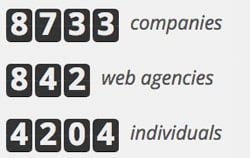
Important notice for all our customers in the European Union. On Wednesday, 12 September 2018, the European Parliament approved three proposals that could be considered controversial in terms of privacy and freedom of opinion. All three proposals are under the Copyright Directive that is considered to be the basis for massive and automated censorship of the Internet that affects even text messages such as Facebook posts and Twitter, but also audio and video material, software and everything that can be subject to copyright.
Here are the three proposals of the European Parliament:
Article 13: Copyright Upload Filters
Most platforms will have to adopt and implement copyright filters that review everything that is published and filter all for which it is concluded that a possible copyright violation. This requires that the platforms cooperate proactively with the right-holders while controlling what goes into the websites. This could at the same time prevent content from being uploaded by users who do not have the right to do so.
A simple example of this is Youtube and Facebook, which will have to prevent its users from upload any material for which they do not have a license.
Article 11: Linking news in more than one word
Linking news to more than one word in the text is prohibited unless you do it at the service that purchased the license from the site with the news that you link to. Newspaper sites will be able to charge any portion that can be quoted or may refuse to charge, and in that way disable citations to link to that news site. Thus, newspaper sites will be able to choose who they will be allowed to quote for criticism or pointing to the news.
For example, this article allows newspaper sites to earn from big players like Google and for all the links that Google sets and points to news stories (as it does in Google News).
Article 12a: No more material from sports matches
No one will be able to share their photos and video clips from sports matches. Only the organizers of the matches will have this right and they will be able to place any kind of material from the events they organize. This ban also includes selfies or short video clips of interesting parts of the game, which are the materials most often shared by people.
In short, this means that the visitor must be a visitor and can do exactly what he has paid for – to come, sit down to the seat under the regular number and leave the stadium or arena after the event ends.
Here’s what the European Parliament rejected
The EU has refused a proposal that would allow photographers not to worry if they capture the detail under copyright discussion in the background of the image. For example, a design on t-shirts, billboards, and buses advertisements, and even specific buildings where some were patented by an architect who designed them.
Also, the EU rejected a proposal to exclude liability for content generated by users on a site – user-generated content. This means that if a user uses a part or a “cut” of a work that is copyrighted, and for criticism, insights, illustrations or caricatures, this will not be excluded from the site’s liability solely because some of the users have used it.
Final decision at the beginning of 2019
The final vote ended with 438 votes in favor and 226 against. In many circles, there are debates about how drastic these measures will change the Internet. However, for all this, it will take another final vote in January 2019. As things stand now, it is most probable that nothing will change and these directives will be approved.







0 Comments